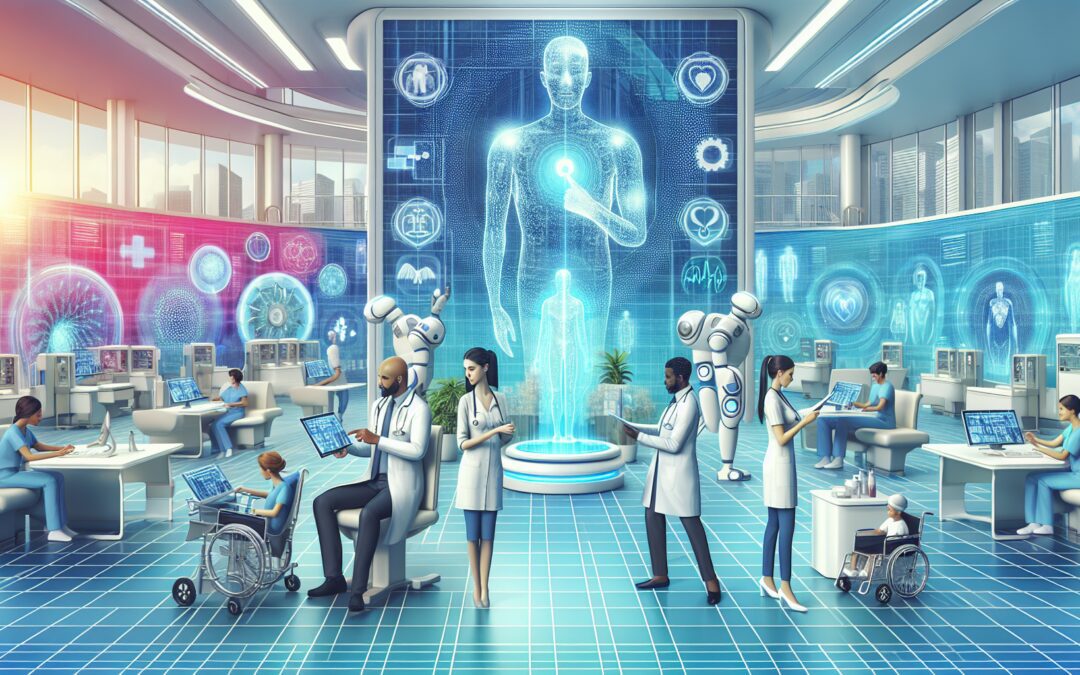The healthcare industry is experiencing a transformative period marked by groundbreaking innovations in patient care systems. These advancements are not merely incremental improvements; they are fundamental shifts that promise to revolutionize the way healthcare is delivered, managed, and experienced by patients and healthcare providers alike.
Technological Advancements
At the forefront of this revolution are technological innovations such as Electronic Health Records (EHRs), telemedicine, wearable health technology, and artificial intelligence (AI).
Electronic Health Records (EHRs)
EHRs have transformed the storage and management of patient data, making it easily accessible to healthcare providers across different platforms. This seamless integration facilitates more accurate diagnoses, personalized treatment plans, and reduced administrative burdens.
Telemedicine
Telemedicine has made healthcare more accessible, especially in remote and underserved regions. By leveraging video conferencing and remote monitoring technologies, healthcare providers can offer consultations, follow-up appointments, and even certain diagnostic services without requiring patients to travel.
Wearable Health Technology
Wearable health devices, such as smartwatches and fitness trackers, are empowering patients to take control of their own health. These devices monitor vital signs in real-time, providing healthcare professionals with continuous data that can inform treatment plans and detect potential health issues before they become critical.
Artificial Intelligence
AI is revolutionizing patient care systems in numerous ways. For example, AI algorithms can analyze large datasets to identify patterns and predict outcomes, assisting doctors in making more informed decisions. AI-powered chatbots are also improving patient engagement by answering queries, scheduling appointments, and offering preliminary consultations.
Impact on Patient Care
The impact of these innovations on patient care is profound. Improved accuracy in diagnoses and personalized treatment plans enhance the quality of care patients receive. Additionally, the convenience of telemedicine and remote monitoring reduces the need for frequent hospital visits, saving time and resources for both patients and healthcare providers.
Furthermore, the integration of AI and wearable technology into patient care systems promotes a proactive approach to health management. Early detection and continuous monitoring help in the early intervention of potential health issues, thereby improving patient outcomes and reducing the overall cost of healthcare.
Challenges and Future Prospects
Despite the significant advancements, there are challenges that need to be addressed. Data privacy and security are paramount concerns in the digital age. Ensuring the confidentiality and integrity of patient data is crucial to maintaining trust in these new systems.
Additionally, the integration of advanced technologies into existing healthcare infrastructure requires significant investment and training. Healthcare providers must be equipped with the necessary skills and tools to effectively utilize these innovations.
Looking ahead, the future of patient care systems holds immense potential. Continued advancements in AI, telemedicine, and wearable technology will likely yield even more sophisticated and effective healthcare solutions. The ongoing collaboration between technology developers, healthcare providers, and policymakers will be essential in navigating the challenges and unlocking the full potential of these innovations.
Conclusion
Revolutionizing patient care systems through technological innovations is not just a possibility; it is becoming a reality. These advancements are transforming healthcare delivery, making it more accurate, accessible, and efficient. As we continue to overcome challenges and embrace new technologies, the future of patient care looks promising, paving the way for a healthier and more connected world.


